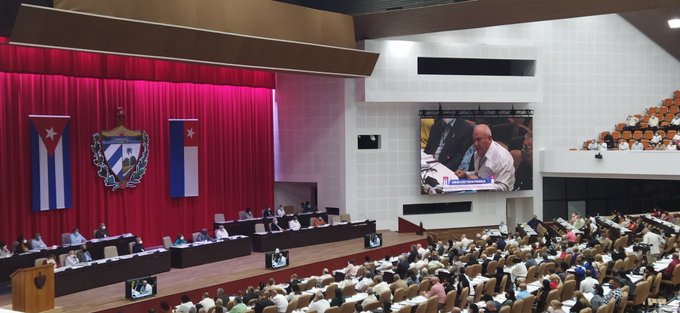During the National Assembly of People’s Power (ANPP, in Spanish), Mr. Tapia claimed the country´s priority for the substitution of imports, not only to face up the drawbacks generated by the US blockade and Covid-19, but also because it is a food sovereignty matter.
Cuba is placed to produce rice, grains and necessary elements for animal feeding, and added that producers, scientists and government entities from different sectors have joined forces in this endeavor.
A great deal of work still lies ahead, said Tapia, while assuring the people that the country´s government will do as much as possible to come ahead in this defining task: the food production.
Generally speaking, parliamentarians backed up the implementation of 63 new measures (passed in April) to boost agricultural sector, even though they stated the need to encourage livestock production, especially pigs, which has been significantly affected.
According to parliamentarian Emilio Interián, the new provisions recognize direct producers as the most important link in the production chain, and establish an effective marketing system.
However, he thought the situation with this particular line requires a deep and detailed analysis to stimulate animal feeding options.
Likewise, Luis Velázquez, president of the Cuban Academy of Sciences, expressed the need to efficiently capitalize on the country´s capacities in scientific matters in an attempt to achieve food sovereignty.
On the other hand, Deputy Marta Wilson, president of the Central Bank of Cuba, explained her entity works closely with the Agriculture and Food-Producing Industry Ministries to provide financing for food production.
mh/pll/msm/evm










